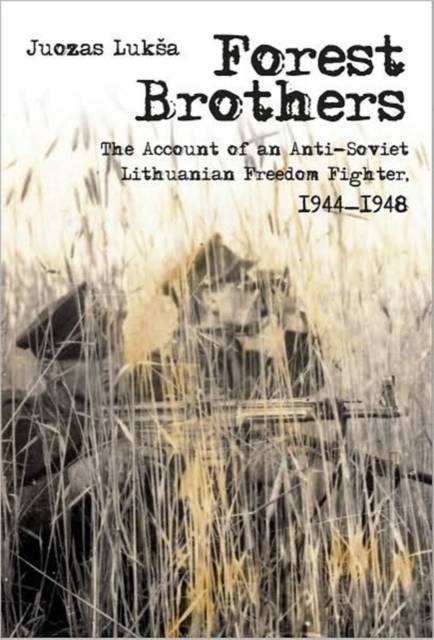
Door een staking bij bpost kan je online bestelling op dit moment iets langer onderweg zijn dan voorzien. Dringend iets nodig? Onze winkels ontvangen jou met open armen!
- Afhalen na 1 uur in een winkel met voorraad
- Gratis thuislevering in België vanaf € 30
- Ruim aanbod met 7 miljoen producten
Door een staking bij bpost kan je online bestelling op dit moment iets langer onderweg zijn dan voorzien. Dringend iets nodig? Onze winkels ontvangen jou met open armen!
- Afhalen na 1 uur in een winkel met voorraad
- Gratis thuislevering in België vanaf € 30
- Ruim aanbod met 7 miljoen producten
Zoeken
Forest Brothers
The Account of an Anti-Soviet Lithuanian Freedom Fighter, 1944-1948
Juozas Luksa
Paperback | Engels
€ 141,95
+ 283 punten
Omschrijving
An autobiographical account of the armed resistance against the Soviet Union, which took place between 1944-1956. Published in English for the first time in unabridged form, Luksa's memoir remains one of the few reliable eye-witness accounts of the "Invisible Front", as dubbed by Soviet security forces. At its zenith 28,000 guerilla fighters participated in battles and skirmishes throughout Lithuania, Luksa (partisan codename Daumantas) being one of the leaders. Forest Brothers also documents the role of women in the resistance, giving equal credit to these often silent partners. In 1948 Luksa and two comrades broke through the Iron Curtain on the Polish border. He sought training from the French intelligence and from the CIA. Luksa was flown back into the Soviet Union under the radar on the night of October 4, 1950. He managed to survive and operate eleven months until his near capture and death on the night of September 5, 1951. His account, written during 1948-1950, while he was living in hiding in Paris, describes in vivid scenes and dialogue the daily struggles of the resistance.
Specificaties
Betrokkenen
- Auteur(s):
- Uitgeverij:
Inhoud
- Aantal bladzijden:
- 422
- Taal:
- Engels
Eigenschappen
- Productcode (EAN):
- 9789639776586
- Verschijningsdatum:
- 10/09/2009
- Uitvoering:
- Paperback
- Formaat:
- Trade paperback (VS)
- Afmetingen:
- 152 mm x 226 mm
- Gewicht:
- 612 g

Alleen bij Standaard Boekhandel
+ 283 punten op je klantenkaart van Standaard Boekhandel
Beoordelingen
We publiceren alleen reviews die voldoen aan de voorwaarden voor reviews. Bekijk onze voorwaarden voor reviews.











